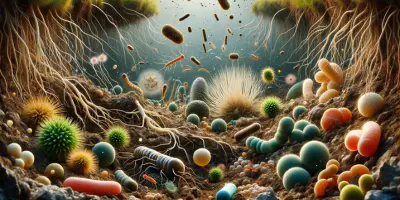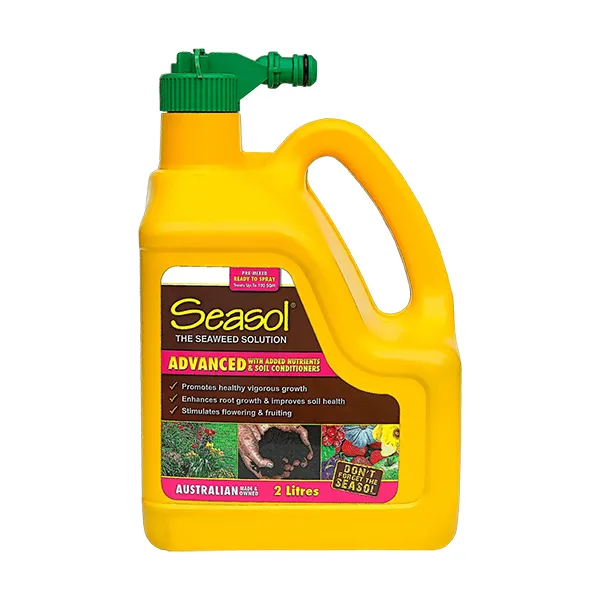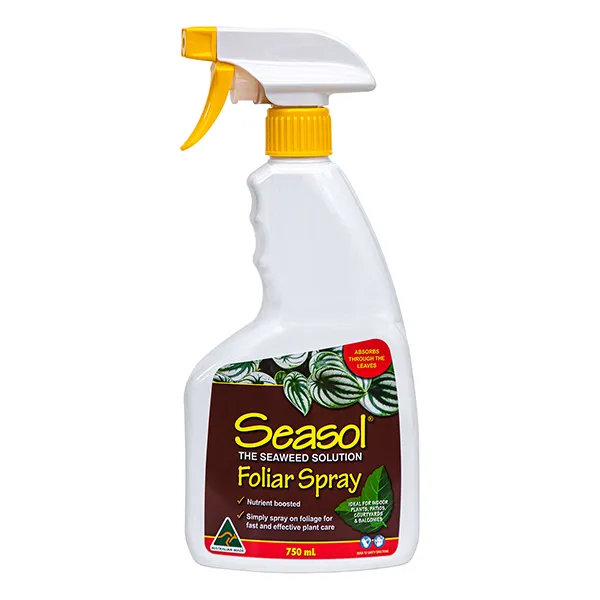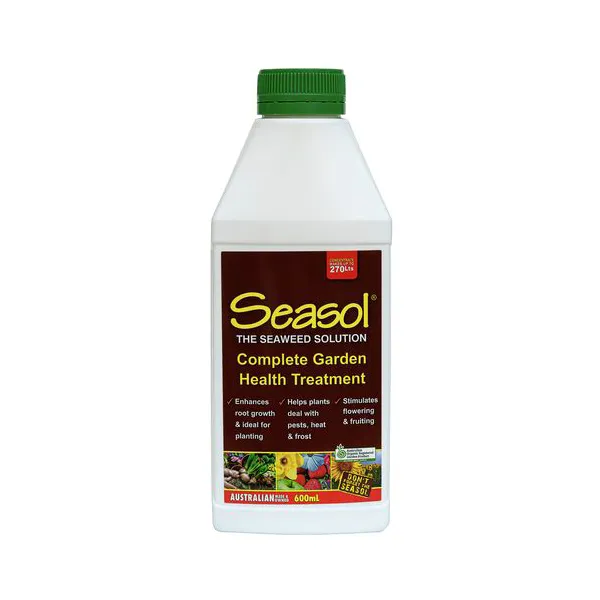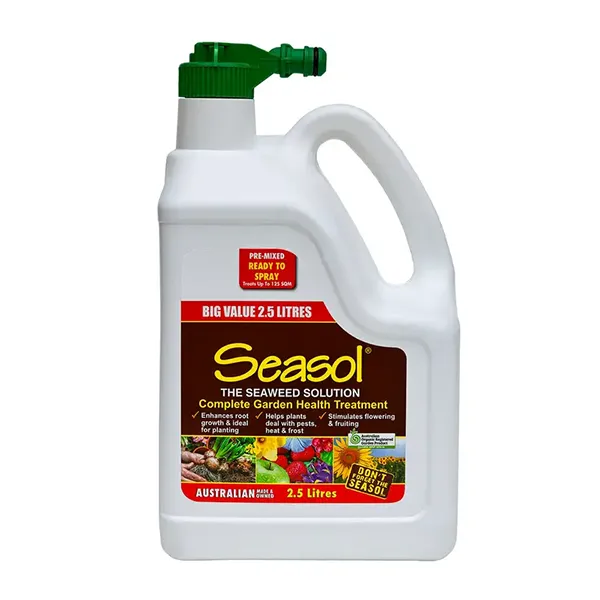Welcome to the world of Seasol, a unique plant tonic and soil conditioner that’s more than just your average fertilizer. It’s a game-changer for garden enthusiasts and farmers alike. Derived primarily from seaweed, Seasol Fertiliser stands out for its multifaceted benefits. It’s not just about feeding plants; it’s about nurturing them and the soil they grow in.
Understanding Seasol Fertilizer
So, what makes Seasol so special? At its heart, Seasol is a plant tonic, rich in nutrients and minerals essential for healthy plant growth. But it’s also a fantastic soil conditioner. Its unique composition promotes strong root growth, which is crucial for plant stability and nutrient uptake. But there’s more – Seasol plays a pivotal role in stimulating beneficial soil micro-organisms. These tiny helpers are key to a healthy, thriving garden
What are Soil micro-organism’s?
Soil micro-organisms are a diverse group of tiny, living entities found in the soil, including bacteria, fungi, protozoa, and micro-arthropods. These organisms, often microscopic and unseen by the naked eye, play an essential role in maintaining and enhancing soil health and fertility.
One of the key functions of soil micro-organisms is in the decomposition of organic matter. When plants, animals, and other organic materials decompose, it is primarily due to the action of these micro-organisms. They break down complex organic compounds into simpler substances, releasing nutrients like nitrogen, phosphorus, and potassium back into the soil. This process is crucial for nutrient cycling, ensuring that plants have access to the essential nutrients they need for growth.
Bacteria and fungi, in particular, have a symbiotic relationship with plant roots. Certain fungi, known as mycorrhizae, form associations with plant roots, extending their network and increasing the plant’s ability to absorb water and nutrients. In exchange, plants provide these fungi with carbohydrates produced through photosynthesis. This mutualistic relationship not only boosts plant growth but also enhances soil structure and stability.
Moreover, soil micro-organisms play a pivotal role in the formation of humus, a complex organic substance that is key to soil’s fertility and water-holding capacity. Humus improves soil structure, making it more porous and better able to retain both water and nutrients. This is particularly important in preventing soil erosion and improving its resilience against extreme weather conditions.
Suppressions of the diseases
Soil micro-organisms also contribute to the suppression of soil-borne diseases. By competing for resources and space, they can inhibit the growth of harmful pathogens, thereby protecting plant health. Some soil bacteria even produce antibiotics that directly target specific plant pathogens.
In essence, soil micro-organisms are the unsung heroes of the soil ecosystem. They are vital for nutrient cycling, improving soil structure, enhancing plant growth, and protecting against diseases. Healthy soil teeming with micro-organisms is a key component of sustainable agricultural practices and essential for the long-term health of our planet’s ecosystems.

Seasol Seaweed Concentrate
It’s a versatile plant tonic suitable for use in all seasons, given its primary function as a health booster rather than a traditional fertilizer. It’s especially beneficial in certain situations and for specific types of plants:
Transplanting and Stress Recovery: Seasol is excellent for use in spring or any time you’re transplanting new plants. Its ability to reduce transplant shock by stimulating root growth helps plants establish more quickly in their new environment.
Drought and Heat Stress: In the hot summer months, Seasol can help plants cope with drought and heat stress. Its application improves plants’ overall resilience, enabling them to better retain water and withstand harsh conditions.
Pre-Winter Preparation: Applying Seasol Fertiliser in autumn can strengthen plants ahead of the winter season, enhancing their cold tolerance and helping them to survive in colder temperatures.
Revitalizing After Winter: Early spring applications can help rejuvenate plants that have been dormant during winter, giving them a boost for the growing season.
All-Year Round Maintenance: Regular use of Seasol throughout the year can promote healthier, more vigorous plants, encouraging flowering and fruiting, and enhancing overall plant health.
Seasol Fertiliser for Specific Plants
Vegetable Gardens: It boosts growth and yield in vegetable plants.
Flower Beds and Ornamentals: Enhances flowering and overall health of flowering plants.
Lawns: Promotes greener, more resilient grass.
Indoor Plants: Useful for improving health and vigor, particularly in stress-prone environments.
Fruit Trees and Shrubs: Encourages healthy growth and fruit production.
Seasol’s organic nature makes it safe to use on almost all plant types without the risk of burning or over-fertilizing, making it an all-rounder in plant care.
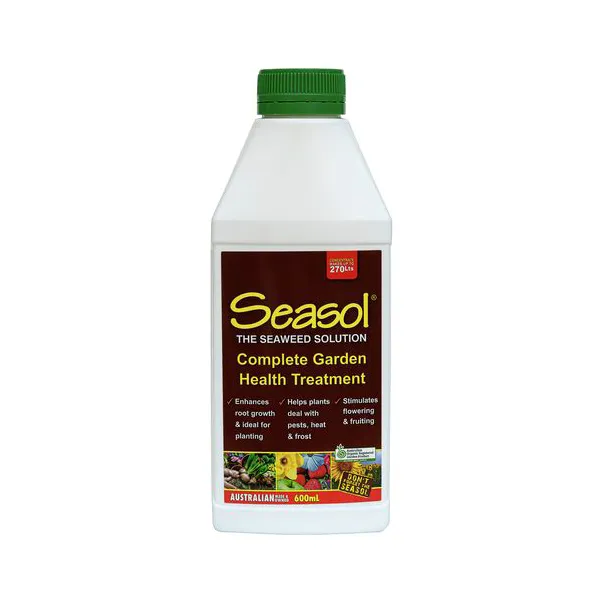
Effective Application of Seasol Fertiliser
Using Seasol Fertiliser effectively can make a big difference. It’s particularly beneficial for helping plants overcome transplant shock and ensuring their well-being afterward. But a question often arises: can you use too much Seasol? The key is balance. While Seasol is generally safe, it’s important to follow recommended guidelines for the best results.
Reviews of Seasol Fertiliser
Often highlight its impressive lawn care properties. It’s not just a fertilizer; it’s a plant strengthener. Seasol Fertliser helps in improving nutrient absorption and empowers plants to withstand environmental stressors like heat, drought, and frost. It’s like giving your plants a protective shield, enhancing their immune systems to face the challenges of nature.




